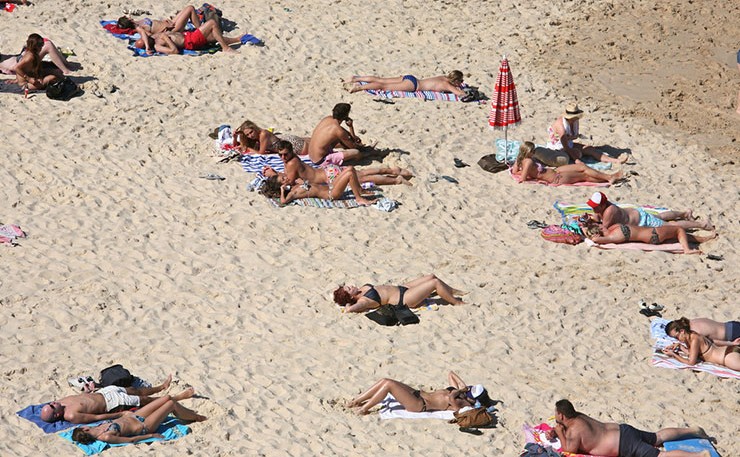Tim Deane-Freeman thinks enough of his place of birth to call it what it really is.
French philosopher Gilles Deleuze once wrote that “arguments from one’s own privileged experience are bad and reactionary arguments”.
It’s quite true. In my work teaching undergraduate philosophy I am at great pains to impress upon students the basic academic premise that if an idea or argument is right, it should be objectively so, regardless of their own identity or presuppositions.
However, identity does play an essential and intractable role in the relative liberty it affords one to point to or discuss these objective facts. Allow me to point to such a fact, and say something that both my identity, and my role in public life, allow me to say without fear of repercussion.
Australia is racist. It is a parochial, frightened, reactionary place with an appropriately wretched politics.
The revival of Pauline Hanson’s shambolic nationalist movement, the largely uncontroversial bipartisan commitment to the imprisonment of refugees for a period now of decades, the grim revelations of procedure at the Don Dale Youth Detention Centre, the archaic colonial bile regularly spat by the likes of Andrew Bolt and Alan Jones, the intractable gulf between First Nations and white Australians in terms of health and education outcomes, the booing of Adam Goodes, the pillory of Yassmin Abdel-Magied, these things represent not anomalies, but a fundamental aspect of the Australian character.
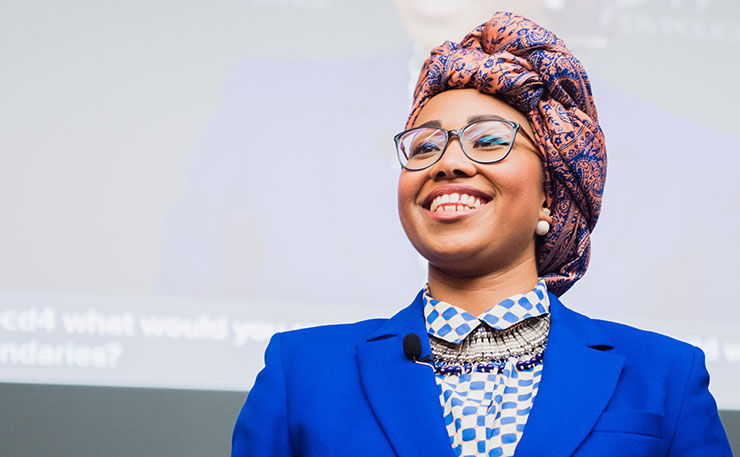
And it seems odd to me, the extent to which this fact, this deep and abiding racist soul, hides in plain sight. Sure, every now and then a minor outrage will cause a brief ripple of think pieces and declamations. At the time of writing it’s Red Symons, who has thrown his predictable hat into the ring with some deplorable remarks in an interview with journalist Beverly Wang. But by and large, this essential truth goes unspoken. Why?
Politicians, of course, can’t say it, though they are certainly aware of it. Howard’s mastery of the politics of race and xenophobia through the 1990s and early 2000s, and Labor’s capitulation to it, changed the direction of Australian public discourse irrevocably, and made race a perennial political weapon in this country.
Everybody knows it, but you can’t say it.
Even in the furthest reaches of the left, electoral necessity determines a narrative in which the ‘average Australian’ is fundamentally a good, tolerant, open-hearted individual. We are a pluralistic, open, ‘multicultural success story’, we are told –although it’s worth noting the extent to which the use of even this platitudinous terminology has dwindled.
Journalists can’t say it. It’s not exactly the kind of sentiment that is going to sell papers; with perhaps the exception of the Green Left Weekly. Again, the public en masse must always be placated with assurances that, while we can argue about the prevalence of a few bad apples, the Australian character is fundamentally solid.
Those commentators that do deal with the issue head-on are generally at pains to point to the peripheral nature of overtly racist demographics. David Marr’s recent (exceptional) piece on Pauline Hanson is emblematic. As he writes:
“The arithmetic that entangles Australia in the race fears of country towns and the outer suburbs in 2017 is the struggle on both sides of politics for Hanson’s few per cent.” (The White Queen, Quarterly Essay)
Personally, I’m not so sure.
Victims of racism certainly can’t say it, as the examples of Goodes and Abdel-Mageid attest. I will return to them shortly.
I began this piece by speaking about identity. You see, I’m a white, cisgendered male, with regular employment and a good education. And unlike George Brandis or Eric Abetz, those facts make me feel galactically far from marginalised. In fact, my identity affords me the platform to confidently express my ideas and observations without the least hesitation.
At the very worst, somebody might respond to a piece like this with a prosaic “if you don’t like it, leave” style offering. Perhaps, if I’m truly unlucky, I’ll upset those staunch defenders of free speech Bolt and Jones enough to deserve litigation. What I don’t have to fear, not for a second, is the kind of vile, seemingly endless outpourings of latent aggression reserved for the likes of Abdel-Magied or Goodes.
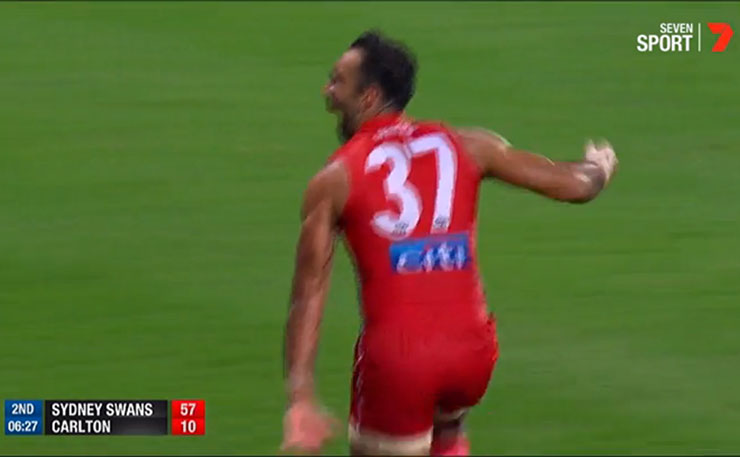
And let’s be clear – to my knowledge they’ve never said anything anywhere near as controversial. Goodes, with characteristic class, suggested a natural Indigenous proclivity for footy, called out a specific instance of racism directed at him from the crowd, and enacted a symbolic act on-field which favourably compared to those of Nicky Winmar, Cathy Freeman and Peter Norman.
Abdel-Magied, saying absolutely nothing of the ANZACs themselves, used the occasion of ANZAC day to lament and to remind us of the situation of those indefinitely and illegally detained by the Australian government on Manus and Nauru.
Both fairly uncontroversial moves in 21st century Australia, I would have thought. But that’s my identity talking again. Because my 21st century Australia is not the 21st century Australia of a person of colour.
Abdel-Magied’s situation is particularly galling. I wouldn’t presume for a second to speak on her behalf – I also wouldn’t dare, she’s a far better advocate than I – but it’s worth noting how utterly disproportionate the reaction to her fairly benign Facebook post has been.
After posting a status on her private account suggesting that on our national day of remembrance we ought to extend our thoughts to those suffering on Manus and Nauru (and Palestine and Syria), numerous commentators were quick to extend their condemnation of the comment to condemnation of her role as a presenter on the ABC.
Eric Abetz tried to have her sacked. Deputy Prime Minister Barnaby Joyce menacingly linked her fate to that of ABC funding. Immigration Minister Peter Dutton recently recapitulated his criticism of Abdel-Magied by responding to news of her axing with the remark: “One down, many to go.”
It’s clear that in the political sphere, her post and the attendant public vitriol were useful weapons against old foes.
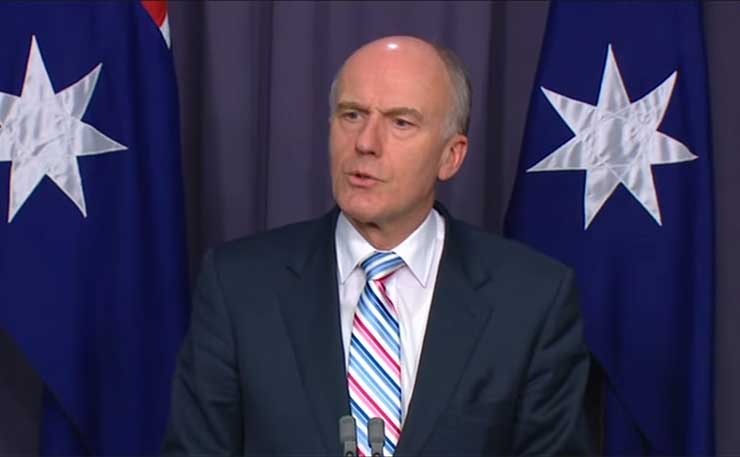
But it’s only in the context of a fertile ground of racist approbation that such condemnations are anything other than ridiculous. A brief read of the stream of comments which follow any of Abdel-Magied’s frequent and innocuous social media posts will attest to this (though it’s not for the faint hearted.) It’s only a deep current of reactionary sentiment that makes her post even resemble anything controversial. People hate her, with a vitriol and barbarism that is disquieting.
I’ve always found ANZAC day pretty tawdry. By 1958 (while most of the ANZAC’s were actually still alive, mind you) the day had rightly sunk into such disrepute as to be the subject of Alan Seymour’s play The One Day of the Year, which portrayed it as a sorrowful, drunken spectacle in its death-throes.
By 1975, The Australian covered the event with a single story. Would that it had remained so.
The nationalism of the Howard years saw a steady resurgence of interest in, and attendance at ANZAC parades and ceremonies – a strange militarism at the heart of a country which professes an identity of ‘anti-authoritarian’ larrikinism.
After quite rightly neglecting, for some years, any celebration of the disastrous Gallipoli campaign (during which, as so often, colonial troops were used as cannon-fodder by British command, for no gain whatsoever) this strange, archaic holiday was revived as a central moment, definitive of nationhood.
This catastrophic imperial whim became our ‘finest hour,’ as though the country hadn’t been nearly the first (after only New Zealand) to affect the female right to vote, or as though we hadn’t made the world’s first feature film.
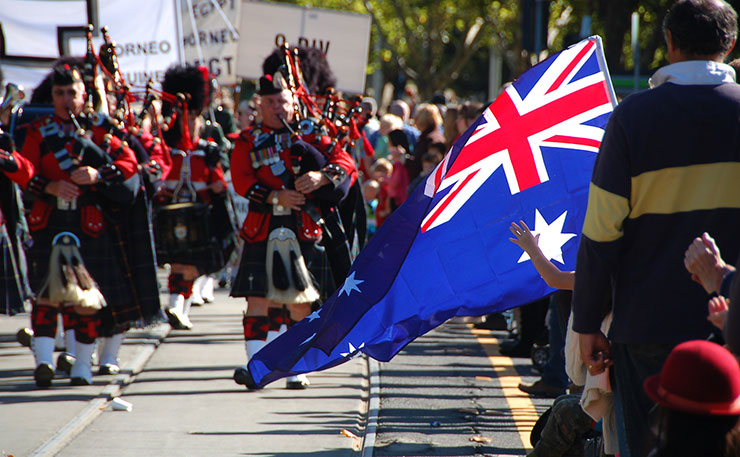
I digress. My point is that nobody cares what I say about ANZAC day, because I happen to be white and male, and exactly the type of ignorable inner-city cliché to make such claims. For Abdel-Magied to even mention this hallowed day, however, without extending any commentary as to its content, has seen her publically attacked with such violence as to affect her decision to leave the country.
Because, you see, she is a woman, a person of colour, and as if that were not enough, a Muslim. And these facts, so incommensurate, in the Australian imagination, with the right to express strong critical positions, have summoned the archaic brimstone I have always known to lie at the heart of this country’s psyche.
I do not blame people for misconceptions beyond their control. The people I grew up with, in an almost-rural town, in a frayed suburbia with no obvious raison d’etre, were racist, sexist and homophobic because of their poverty, alienation and fear.
The implications of class in this space, and the manipulability of vulnerable people, are subjects for another time. I merely seek to disavow this narrative which is marbled through Australian identity from top to bottom, and professed by those who should know better; that Australia is the ‘lucky’ country.
This ‘luck’ has only ever been the luck to be born with white skin.
Donate To New Matilda
New Matilda is a small, independent media outlet. We survive through reader contributions, and never losing a lawsuit. If you got something from this article, giving something back helps us to continue speaking truth to power. Every little bit counts.

